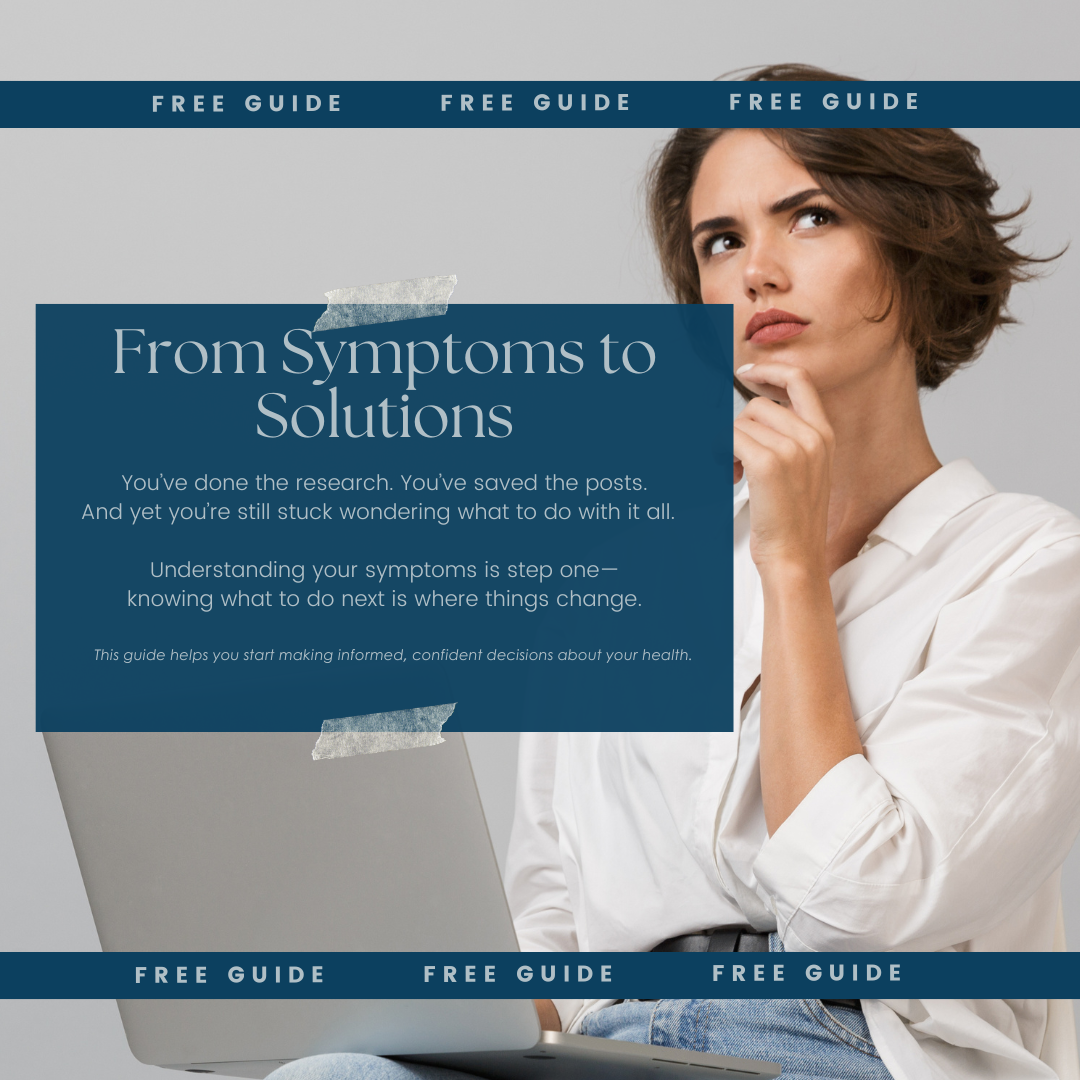When Menopause and Puberty Collide: Parenting Teens While Surviving Perimenopause
Aug 31, 2025
A few weeks ago, I saw a post on Instagram that had me nodding so hard I almost gave myself whiplash. You know the kind—the one that makes you feel like you and that stranger on the internet could totally be BFFs if life ever gave you the chance.
It basically said: “If you had your kids later in life, chances are your hot flashes and their acne are about to collide. Godspeed.”
And whew… that one hit me right in my peri-menopausal soul.
Because if you, like me, had your babies in your mid-to-late 30s or even your fabulous 40s, you’re probably living in a house with competing hormonal crises.
And let me tell you, my poor husband and son should get some kind of medal for surviving life with me and my 13-year-old daughter as we both navigate… “the changes.”
Yes, we are currently passengers on the Hot Mess Express.
Perimenopause, Meet Puberty
Just when I was getting used to battling the gray hairs, rogue chin hairs, unpredictable mood swings, hot flashes, cold flashes, sudden belly fat, and my BFF insomnia, here comes my daughter’s puberty parade.
She’s 13. She’s moody. She’s got hormones that go from zero to 100 in five seconds flat.
And here I am, trying to remember if I put my keys in the freezer while Googling “best supplements for brain fog.”
We are two hormonal hurricanes in one house, circling each other with side-eye and sarcasm.
The “M” Word Nobody Warned Us About
Here’s what I’ve learned (and what I wish someone had told me):
If you’re over 35, you’re not “too young” to feel the early symptoms of perimenopause.
You might be dealing with:
-
Weight gain around your midsection (despite eating the same)
-
Sleep disruptions that make you feel like a zombie
-
Mood swings that rival your teenager’s
-
Joint pain, dry skin, thinning hair
-
The libido of a sloth
-
And… oh joy, slower recovery from everything.
This is your body’s way of saying, “Hey, sis. Hormone levels are changing. Buckle up.”
But here’s the good news: you’re not doomed to feel awful forever. You can take back control through movement, nutrition, stress management, and most importantly, getting educated about what’s happening in your body. (That’s why I do what I do, but that’s a blog for another day.)
Double the Hormones, Double the Fun
Parenting a teen is its own Olympic sport, but add in your own hormonal rollercoaster and you’ve got yourself an emotional obstacle course.
Teenagers are finding independence, testing boundaries, and searching for confidence. Meanwhile, you’re over here trying to remember where you left your glasses.
It’s easy to take their slammed doors and epic eye-rolls personally—especially when you’re already feeling emotionally raw yourself.
But here’s the truth bomb: It’s not about you.
That doesn’t make it easier, but it does make it less personal.
How to Survive the Hormone House
Over the last few years (and plenty of trial-and-error), I’ve learned that communication, patience, and self-compassion are the holy trinity of this season.
Here are my favorite tips—many borrowed from Kari Kampakis’ book Love Her Well (a must-read if you’re parenting a teen girl, but equally helpful for boys too):
-
Take the lead. Don’t wait for your kid to come to you; create opportunities to connect.
-
Learn from your mistakes. You’re not perfect, and they need to see that.
-
Let go of regret. Today is a new day.
-
Stop comparing. Your relationship doesn’t have to look like anyone else’s.
-
Give them space. Independence is healthy, even if it’s annoying.
-
Spend one-on-one time together. Even if it’s five minutes in the car.
-
Say what you love about them. Teens need to hear it, even if they roll their eyes.
-
Make them a priority. Not your phone. Not your to-do list. Them.
-
Show affection. Hugs matter—even if they stiff-arm you.
-
Don’t take rejection personally. This stage is temporary.
And here’s my bonus advice: Grace, grace, grace. For your kid. For your partner. And especially for yourself.
Turning Chaos Into Connection
This season can feel like a battlefield, but it can also be a powerful bonding opportunity. You and your teen are both navigating life-changing transitions.
So share your journey. Let them know why you sometimes cry in the laundry room or need a nap at 3 PM. Show them what self-care looks like. Talk about hormones and body changes openly, because they’re learning from you how to navigate their own.
And maybe, just maybe, one day you’ll laugh together about the “year of feuding hormones.”
Until then, I’m over here with my heating pad, dark chocolate, and deep breaths.
Your turn . . . tell me in the comments: How do YOU handle a house full of hormones? What’s your best tip for keeping communication alive?
Stay connected with news and updates!
Join our mailing list to receive the latest news and updates from our team.
Don't worry, your information will not be shared.
We hate SPAM. We will never sell your information, for any reason.


